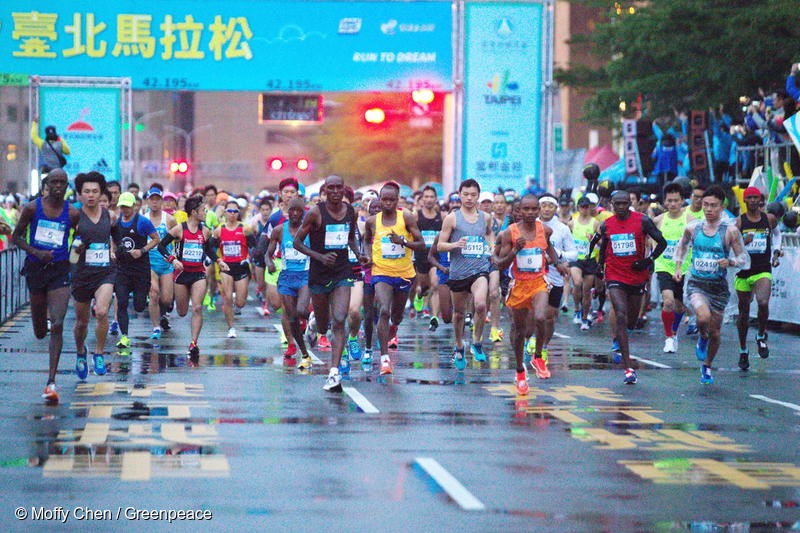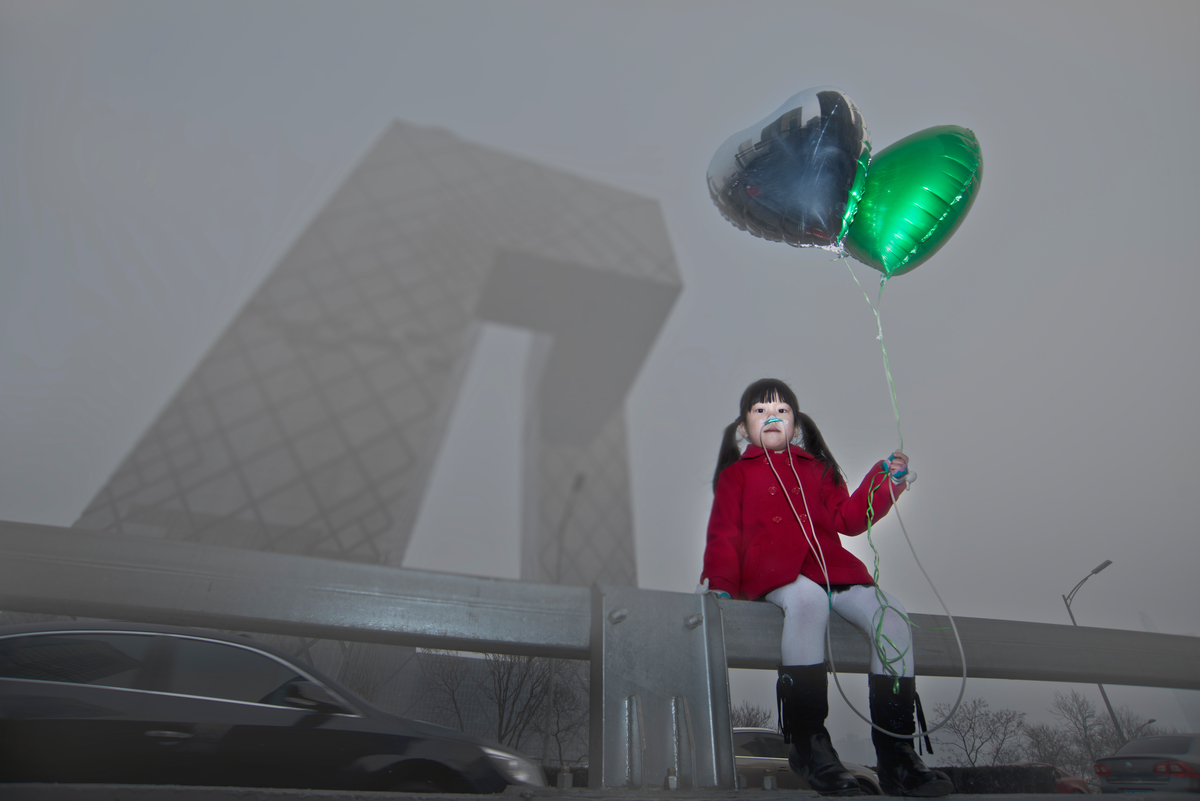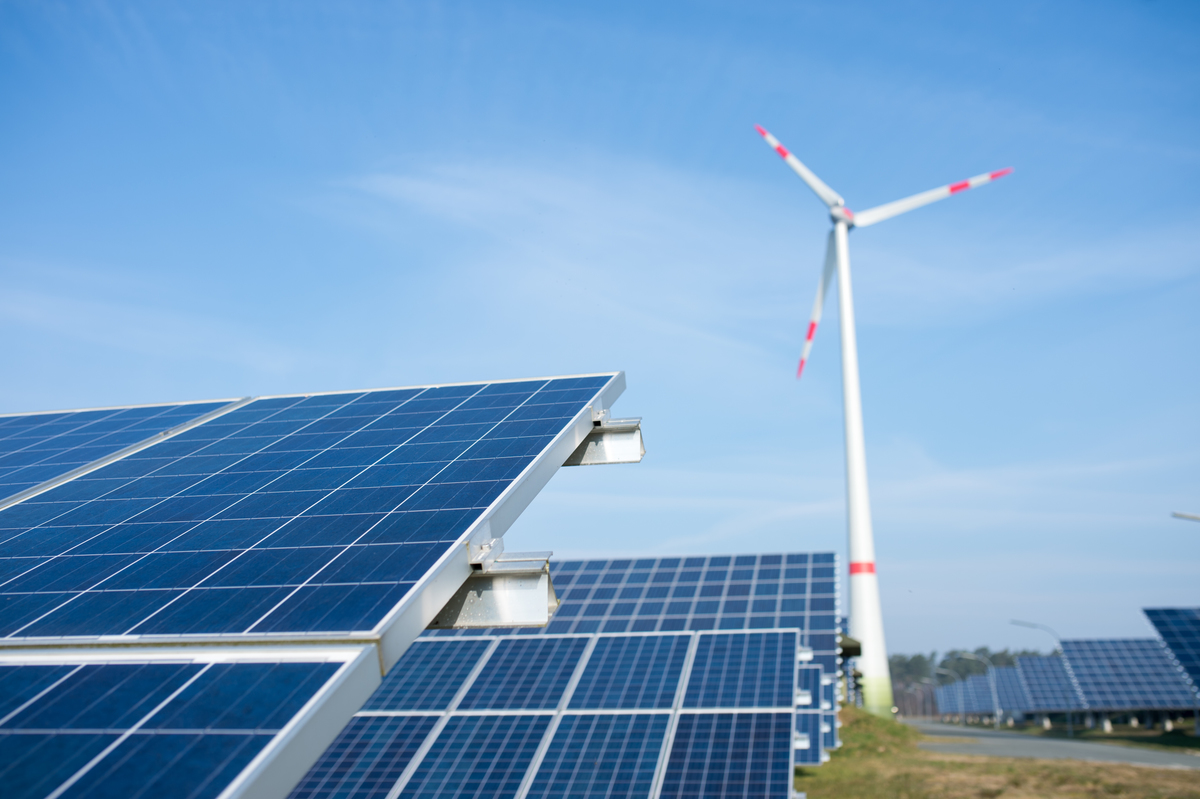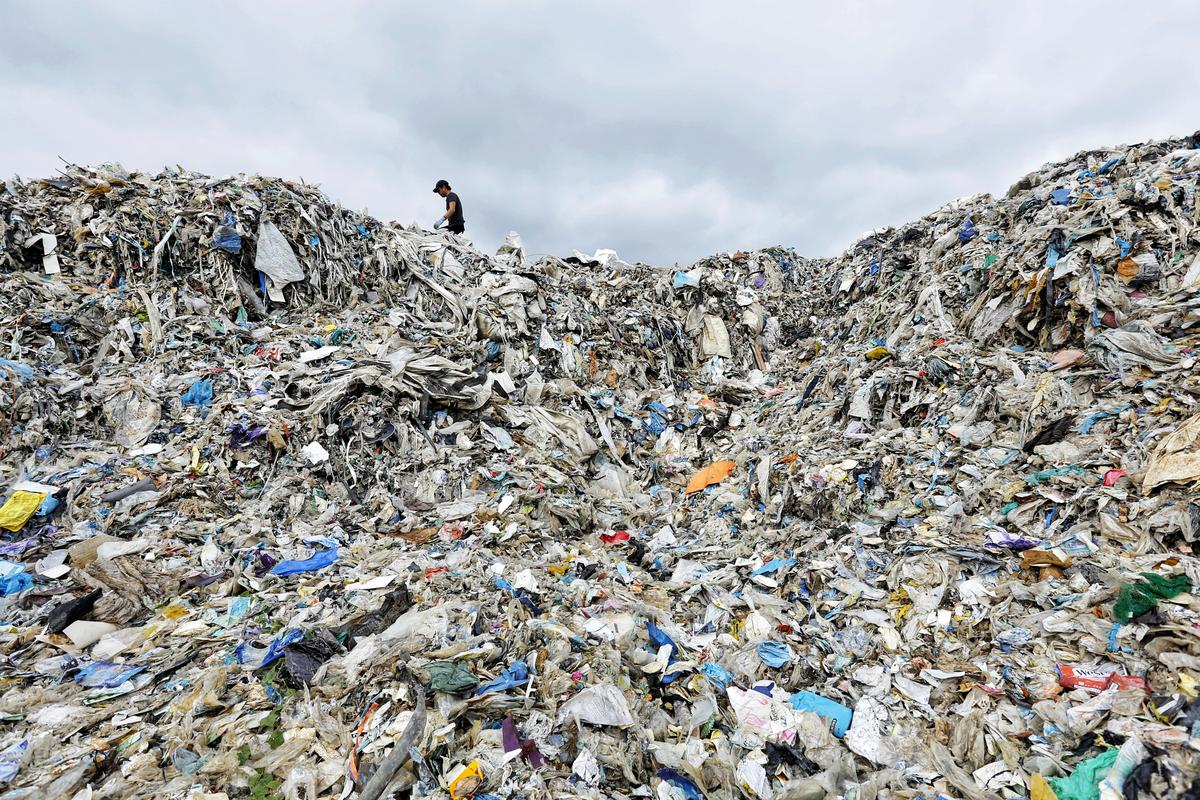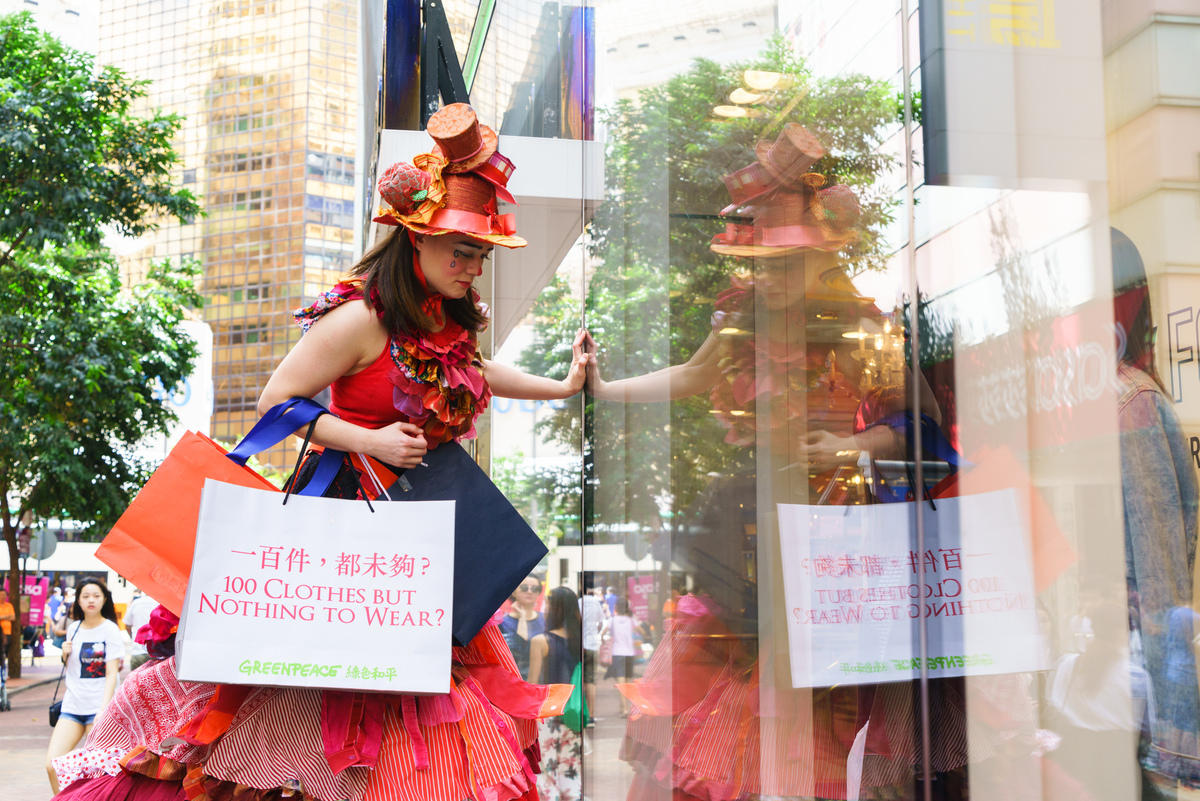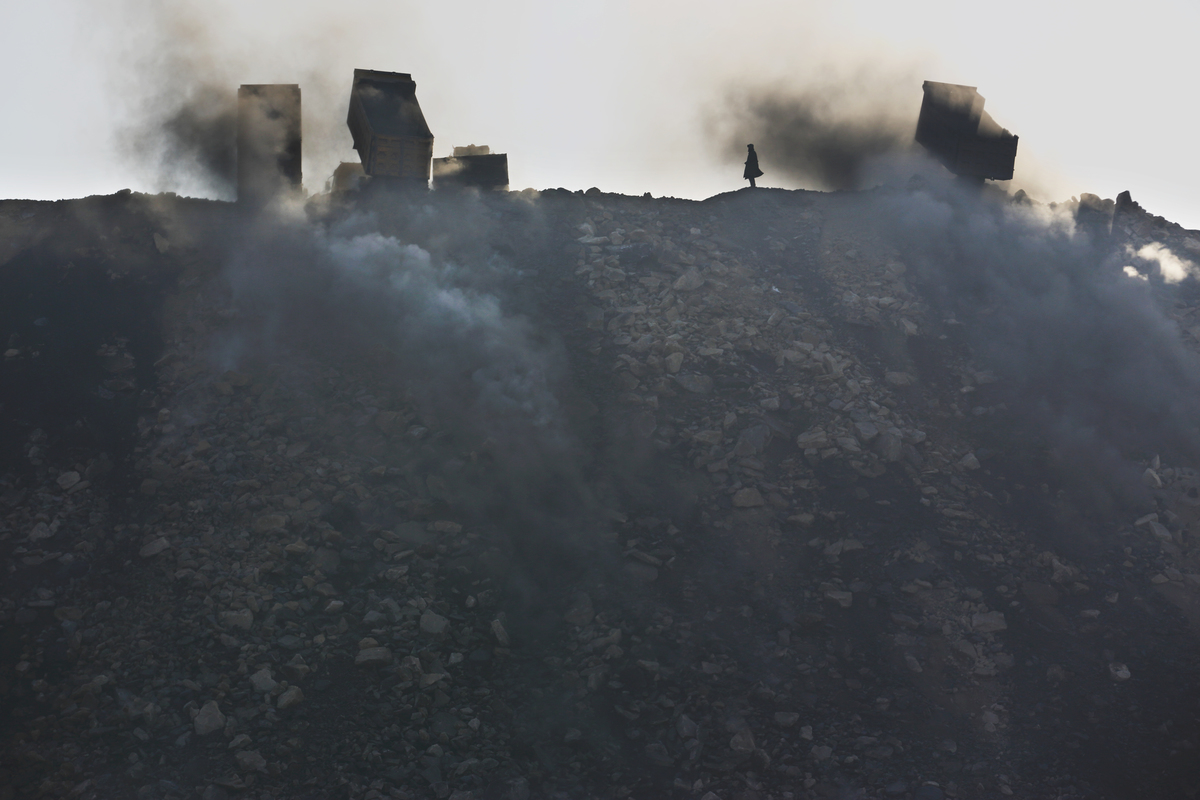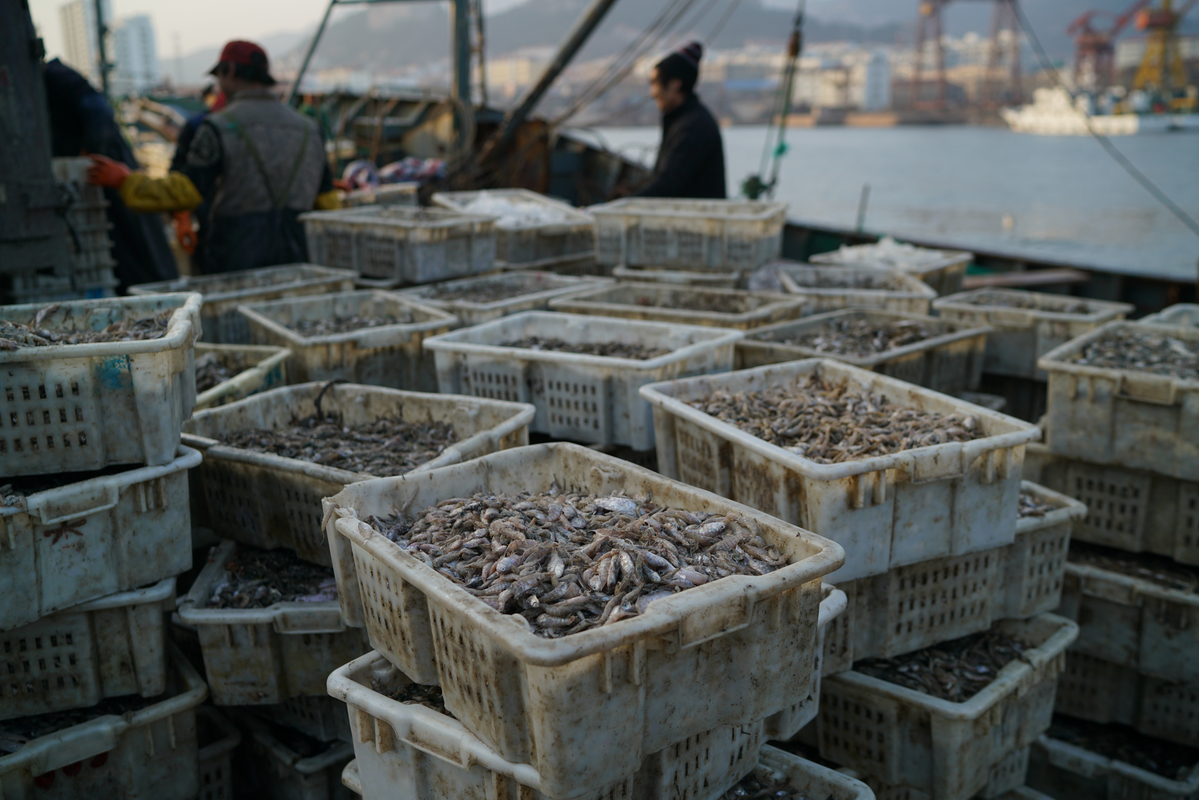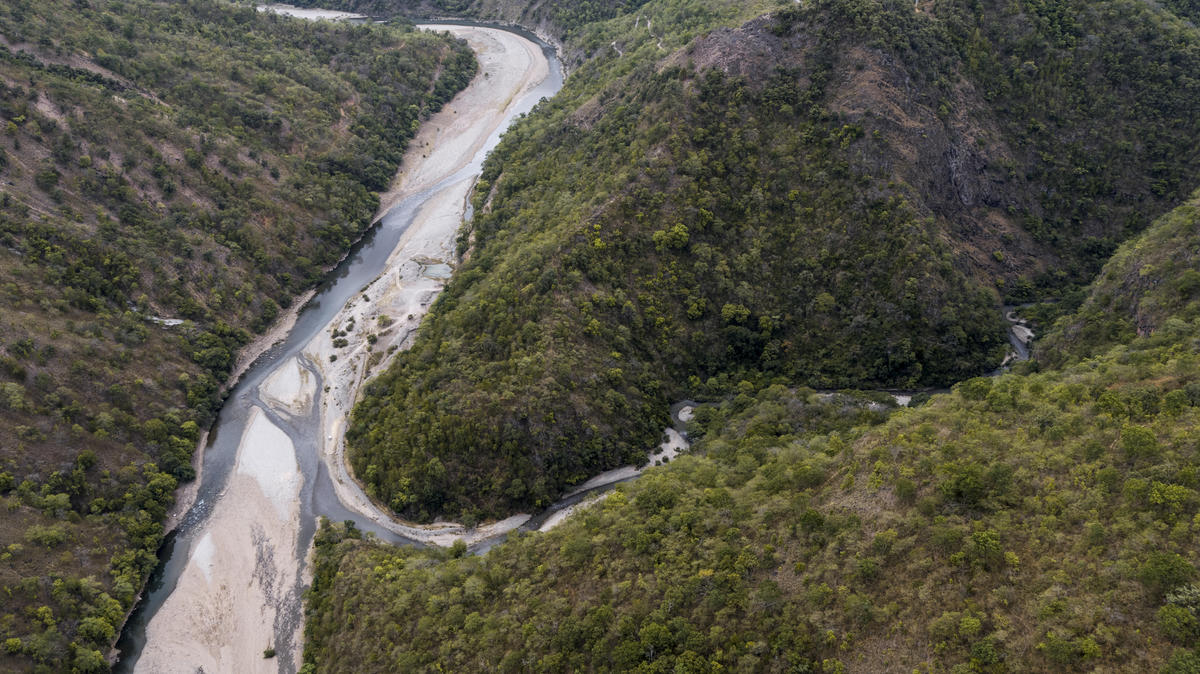All articles
-
Taipei City Marathon pledges “green” for its first ever sustainable event
Taipei, Taiwan, 11 May 2018 - In a Memorandum of Understanding (MoU) between Taipei City Government and Greenpeace East Asia, this year’s Taipei City Marathon has committed to reducing single-use plastic, the first large-scale environmental effort of its kind by the capital.
-
PM2.5 in Beijing down 54%, but nationwide air quality improvements slow as coal use increases
Beijing, 11 January, 2018 -- Levels of toxic PM2.5 in Beijing, Tianjin and 26 surrounding cities declined 33.1% year on year in the fourth quarter of 2017, new analysis from Greenpeace East Asia shows. However, average PM2.5 concentration fell just 4.5% nationwide in 2017, the lowest rate since the start of China's ‘war on pollution’.
-
As Huawei seeks to enter US market, climate commitment sorely lacking – Greenpeace
Beijing, 9 January 2018 - With Huawei expected to announce the US launch of its flagship model, the Mate 10 Pro Phone, at the Consumer Electronics Show in Las Vegas today, Greenpeace calls attention to the company's poor climate record.
-
Oil tanker carrying 1 million barrels of oil on fire off China coast – Greenpeace response
Beijing, 8 January 2018 - In response to the collision of the Sanchi oil tanker and the cargo ship CF Crystal in the East China Sea on Sunday, Greenpeace expresses concern about the safety of the 32 missing crew members.
-
China’s ban on imports of 24 types of waste is a wake up call to the world – Greenpeace
Beijing, 29 December 2017 - China’s upcoming ban on the import of 24 types of waste will send a wake up call to waste exporting countries and increase pressure to find more sustainable ways to dispose of and recycle waste, as well as tackle the issue at source by reducing the production of plastics and…
-
Land fill project in eastern China threatens survival of critically endangered spoon-billed sandpiper – Greenpeace report
Beijing, 14 December 2017 – The survival of the IUCN critically-endangered spoon-billed sandpiper is under threat from a planned land fill project at Tiaozini, Jiangsu province, a Greenpeace East Asia report shows. Fewer than 700 spoon-billed sandpipers remain worldwide. [1] Greenpeace calls on Jiangsu’s government to immediately halt the project and to include the area…
-
Singles Day clothing sales produced 258,000 tonnes of CO2 emissions in 2016: Greenpeace
Apparel sales from China’s 2016 “Singles Day” internet shopping bonanza produced 258,000 tonnes of CO2 emissions -- equivalent to the CO2 absorbed by 2.58 million trees, new research from Greenpeace East Asia shows. [1]
-
“Green” bond financed coal to chemical plant in China will emit millions of tons of CO2 – Greenpeace
Beijing, 17 August 2017 - On 16 August Chinese media reported that a new coal to chemical plant in Shanxi province will receive 1.5 billion RMB (USD 224 million) worth of green bonds.[1] Greenpeace East Asia calculations estimate that the new plant will release about 1.9 million tons of CO2 per year. That is equivalent…
-
Almost one third of China’s annual fisheries catch is ‘trash’ fish – Greenpeace
Beijing, 31 July 2017 - 4 million tons of China’s total annual domestic fisheries catch is comprised of so-called “trash” fish - fish too young or too small to be consumed by humans - a Greenpeace East Asia investigation has found. This accounts for nearly one third of all catch and is equivalent to more…
-
Illegal mining discovered in China’s last remaining green peafowl habitat – Greenpeace
Beijing, 12 July 2017 - Satellite imagery analysis and fieldwork conducted by Greenpeace East Asia have uncovered illegal mining and road construction in the Konglong River Nature Reserve in China’s southwestern Yunnan Province. The protection area forms part of China’s last remaining habitat of the CITES and IUCN Red List endangered green peafowl. The green…

